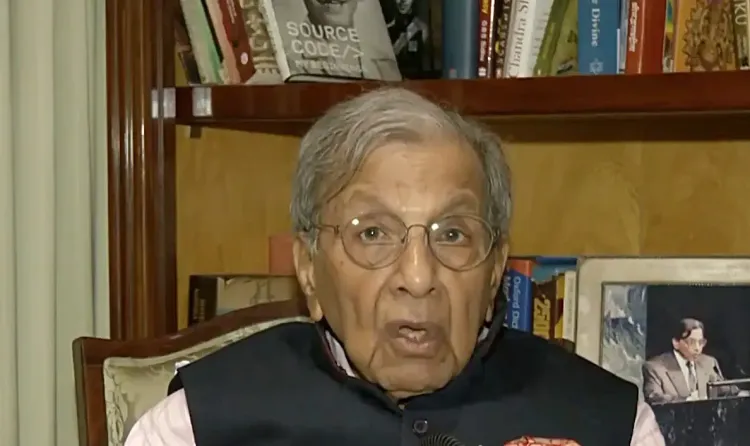Should Bihar Election Prioritize Economic Growth?

Synopsis
Key Takeaways
- Bihar's GDP grew by 22% this fiscal year.
- Per capita income has increased by around 20%.
- Strong fiscal management has driven recent growth.
- Central government support is crucial for infrastructure projects.
- Both manifestos are financially achievable.
Patna, Oct 31 (NationPress) Following the unveiling of the National Democratic Alliance (NDA)'s 24-point manifesto for the Bihar Assembly elections, former MP and Chairman of the 15th Finance Commission N. K. Singh emphasized that the spotlight of this election should be on Bihar’s economic prospects and ongoing development.
Addressing Bihar’s growth trajectory, Singh stated to IANS that although the state is frequently labeled as one of India's most underdeveloped regions, it is essential to recognize the significant advancements it has achieved in recent years.
“Bihar is often categorized among the most disadvantaged states in the nation. While it ranks low on various indicators such as education, health, infrastructure, and manufacturing, many overlook two crucial facts — there has been considerable progress in recent years,” Singh remarked.
He pointed out that Bihar’s nominal Gross Domestic Product (GDP) surged by 22 percent in the ongoing fiscal year, and the population growth rate has been stabilized at 1.4 percent, contributing to an approximate 20 percent increase in per capita income.
“Previously, per capita income growth was limited to only 1-2 percent annually. Now, it has escalated to around 20 percent - which is extraordinary,” Singh noted.
Discussing the reasons behind this growth, Singh attributed it to enhanced fiscal management by the state government.
He remarked that the commitments made in both the NDA’s manifesto and that of the Grand Alliance are financially sound and attainable.
“Whichever party wins will be capable of fulfilling the promises outlined in the manifestos,” he stated.
Highlighting the necessity of consistency and investment, Singh asserted that sustaining the current growth momentum over the next five years and attracting investors who trust the state’s business climate is vital.
He also underscored the importance of strong collaboration between the state and central governments, especially for Bihar, which still needs considerable central support for infrastructure development.
“Bihar requires assistance from the Centre for transportation projects, including road, rail, and air connectivity. The financial burden of these initiatives cannot be borne solely by the state. A responsible government at both levels can propel Bihar’s growth,” Singh concluded.










